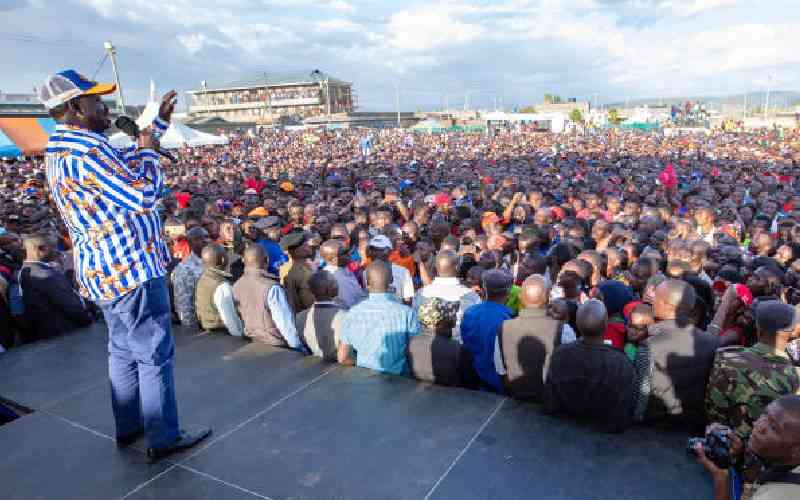×
The Standard e-Paper
Home To Bold Columnists

Kenya's battered economy faces another stability test beginning tomorrow as the opposition vows to conduct mass rallies around the country to protest the high cost of living and last August's disputed presidential polls.
Businesses fear any further disruptions following the Covid-19 pandemic, political jitters caused by last year's divisive General Election and the current drought could wreck any hopes of recovery for East Africa's largest economy.